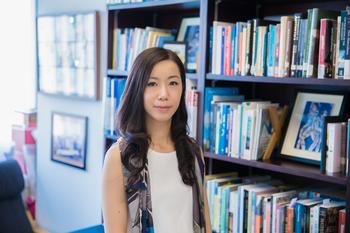Dr. Lai-Man Winnie Yee

Fellow in the project "Social Worlds: China's Cities as Spaces of Worldmaking" (June-July 2022)
Short Biography
Winnie L. M. Yee is assistant professor in comparative literature and program coordinator of the MA Program in Literary and Cultural Studies at the University of Hong Kong. In 2019–20 she was a fellow at the Rachel Carson Center for Environment and Society at Ludwig-Maximilian University of Munich. Her research interests are ecocriticism, contemporary Chinese literature and film, Hong Kong culture, and independent cinema.
Project
Manufacturing Environmental Urbanscapes: An Analysis of Eco-documentaries in the Age of ChinaThe proposed project would explore the potential of Asian eco-documentary to encourage responsible action and heighten awareness of the decline of the climate due to human interference. In recent decades, mainland China has suffered the consequences of being the world’s largest importer of waste and plastics. In the 1990s, Chinese markets saw that discarded plastic could be profitably recycled into exportable goods. The consequences of this enterprise – wretched working conditions and permanent damage to the environment around contaminated landfill sites – have now become critical hazards. The filmmakers of the “urban generation” in mainland China have primarily focused on the rapid growth of cities, exposing the violent aspects of societal transformation. Attempts to bolster anthropocentrism and interrelationships between the human and natural environment are among the only means of dealing with a drastic and mutating reality. The proposed research project explores how eco-documentaries act not only as a faithful record of reality but also as a hermeneutical endeavor to make sense of the changing world of China. Their adaptation of aesthetic materialism to refocus attention on the material efficacy present in human and natural bodies has given Chinese films a global reach, as a means of fostering alternative visions that illuminate our understanding of the dynamic between nature and culture, our tangible and intangible heritage, our connections and differences in the face of globalization. These films have directly contributed to the emergence of new activist documentary mode and have overturned the official narrative with the active participation of the citizens and local communities that dealt with the disasters and their aftermath, creating Chinese cities as spaces of worldmaking.
